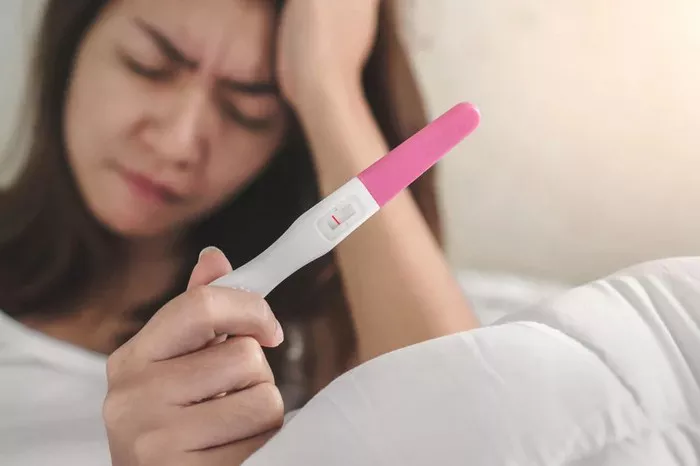Ovulation, a crucial aspect of a woman’s reproductive cycle, involves the release of an egg from the ovary. However, for some women, this process may not occur as smoothly as expected due to various reasons, leading to what is commonly known as ovulation disorders. In this article, we will delve into the intricacies of ovulation disorders, covering everything from their definition to their impact on fertility, while also addressing the needs and concerns of individuals affected by this condition.
Definition of Ovulation Disorders
Ovulation disorders encompass a range of conditions characterized by disturbances in the regular production and release of eggs during a woman’s menstrual cycle. Essentially, these disorders disrupt the intricate hormonal balance necessary for ovulation to occur seamlessly. While ovulation is a natural process for most women, those experiencing ovulation disorders may face challenges in achieving pregnancy due to irregular or absent ovulation.
Causes of Ovulation Disorders
Understanding the root causes of ovulation disorders is essential for effective management and treatment. Hormonal imbalances, often stemming from conditions such as polycystic ovary syndrome (PCOS), can significantly interfere with ovulation. PCOS, one of the leading causes of ovulation disorders, is characterized by hormonal abnormalities, ovarian cysts, and irregular menstrual cycles. Other factors contributing to ovulation disorders may include thyroid disorders, obesity, excessive exercise, and stress.
Symptoms of Ovulation Disorders
Recognizing the symptoms associated with ovulation disorders is crucial for early detection and intervention. Common symptoms may vary among individuals but often include irregular menstrual cycles, ranging from shorter or longer-than-normal cycles to absent periods altogether. Additionally, women with ovulation disorders may experience changes in their mood, such as increased irritability or anxiety, as well as fluctuations in weight.
Diagnosis of Ovulation Disorders
Accurate diagnosis forms the cornerstone of managing ovulation disorders effectively. Medical professionals typically employ a combination of methods to diagnose ovulation disorders, including comprehensive medical history evaluations and physical examinations. Additionally, various tests may be conducted, such as blood tests to assess hormone levels, pelvic ultrasounds to evaluate ovarian function, and tracking basal body temperature or hormonal markers throughout the menstrual cycle.
Treatment Options for Ovulation Disorders
Fortunately, several treatment options are available to address ovulation disorders and improve fertility outcomes. Fertility medications, such as clomiphene citrate or letrozole, are commonly prescribed to stimulate ovulation in women with ovulation disorders. These medications work by inducing the release of eggs from the ovaries, thereby increasing the chances of conception. In some cases, hormone replacement therapy may also be recommended to restore hormonal balance and facilitate ovulation.
Lifestyle Modifications
In addition to medical interventions, adopting certain lifestyle modifications can complement treatment efforts and enhance overall reproductive health. Maintaining a healthy weight through balanced nutrition and regular exercise is paramount, particularly for women with conditions like PCOS, where obesity can exacerbate ovulation disorders. Furthermore, managing stress levels and prioritizing adequate sleep are essential for optimizing hormonal balance and menstrual regularity.
Impact on Fertility
Ovulation disorders can have a profound impact on fertility, making conception challenging for affected individuals. However, with timely diagnosis and appropriate treatment, many women can overcome these challenges and achieve successful pregnancies. It’s important to acknowledge that fertility journeys vary widely among individuals, and seeking support from fertility specialists or support groups can provide valuable guidance and encouragement along the way.
Personal Stories and Testimonials
To offer a personal perspective on ovulation disorders, let’s hear from individuals who have navigated the complexities of this condition firsthand.
Anna’s Story:
Anna struggled with irregular menstrual cycles for years before being diagnosed with PCOS. Through a combination of medication, lifestyle changes, and emotional support, Anna successfully conceived and is now a proud mother.
David and Sarah’s Journey:
David and Sarah faced fertility challenges due to Sarah’s ovulation disorder. After exploring various treatment options and undergoing fertility treatments, they welcomed their long-awaited bundle of joy through in vitro fertilization (IVF).
Linda’s Experience:
Linda’s journey with ovulation disorders was marked by uncertainty and frustration. Despite numerous setbacks, she remained resilient and eventually found success with alternative therapies and holistic approaches to fertility.
Conclusion
In conclusion, ovulation disorders present significant challenges for women aspiring to conceive, but with the right support and interventions, successful outcomes are achievable. By understanding the causes, symptoms, diagnosis, and treatment options associated with ovulation disorders, individuals can make informed decisions regarding their reproductive health. Remember, each fertility journey is unique, and seeking professional guidance and emotional support can make all the difference in achieving the dream of parenthood.
























